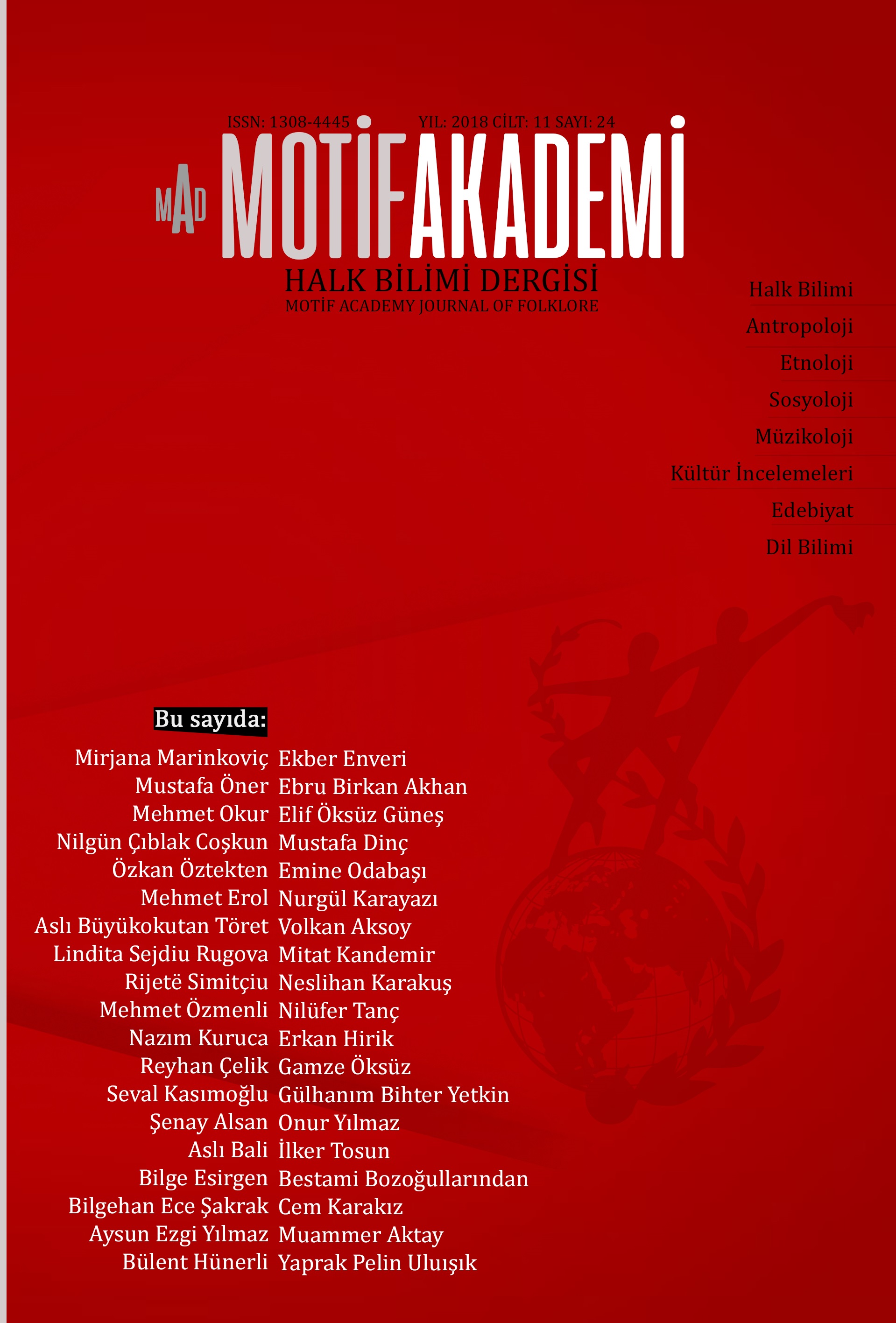İSYANIN MİZAHI: HOBSBAWM’IN TOPLUMSAL EŞKIYALIK TANIMI VE KEMAL SUNAL FİLMLERİ
HUMOR OF REBELLION: HOBSBAWM’S SOCIAL BANDITRY DEFINITION AND KEMAL SUNAL MOVIES
Author(s): Mustafa DinçSubject(s): Customs / Folklore, Film / Cinema / Cinematography
Published by: Motif Halk Oyunları Eğitim ve Öğretim Vakfı
Keywords: Kemal Sunal; Hobsbawm; banditry; cinema; folklore;
Summary/Abstract: The phenomenon of banditry is a movement of rebellion which, societies can be confronted and can see in the historical processes of all societies betweentimes, and which produces political, social and economic results. Due to this versatility, academic studies on the phenomenon of banditry are carried out almost in all branches in social sciences, such as history, sociology and politics. As a result of the researches, another aspect of banditry, which is seen among the people in rural areas and the lower income group, is the narrative tradition of the people in this rural environment.It is seen that in every culture that has passed in experience of the banditry, some bandits are highly respected, glorified or even heroic among the people. This type of bandits identified by the British historian Hobsbawm under the name of social bandits are being supported by the public and separated from the common criminals who commit murders, commit extortion, and create a climate of terror. In many times this support occurs from sharing the same fate, so that the bandits which are named social bandits are became the spokesman of the people at the same time. And also, social bandits contribute in the literary creations of the folk whom they belong to, through many of narrative products such as heroic stories, epic and poem produced about them. The contribution of banditry to literature has been also a source for the art of cinema, which establishes the closest relationship with literature and can be defined as a visual representation of a verbal or written narrative. In this respect, the narratives of banditry were frequently discussed and has been met with interest both in the west and Yeşilçam cinema tradition. In this study, the bandit presentations which were found in the films of Kemal Sunal played as the chief part, who became a school of comedy in Turkish cinema, will be evaluated under Hobsbawm's social banditry and related sub-titles.
Journal: Motif Akademi Halkbilimi Dergisi
- Issue Year: 11/2018
- Issue No: 24
- Page Range: 73-90
- Page Count: 18
- Language: Turkish

